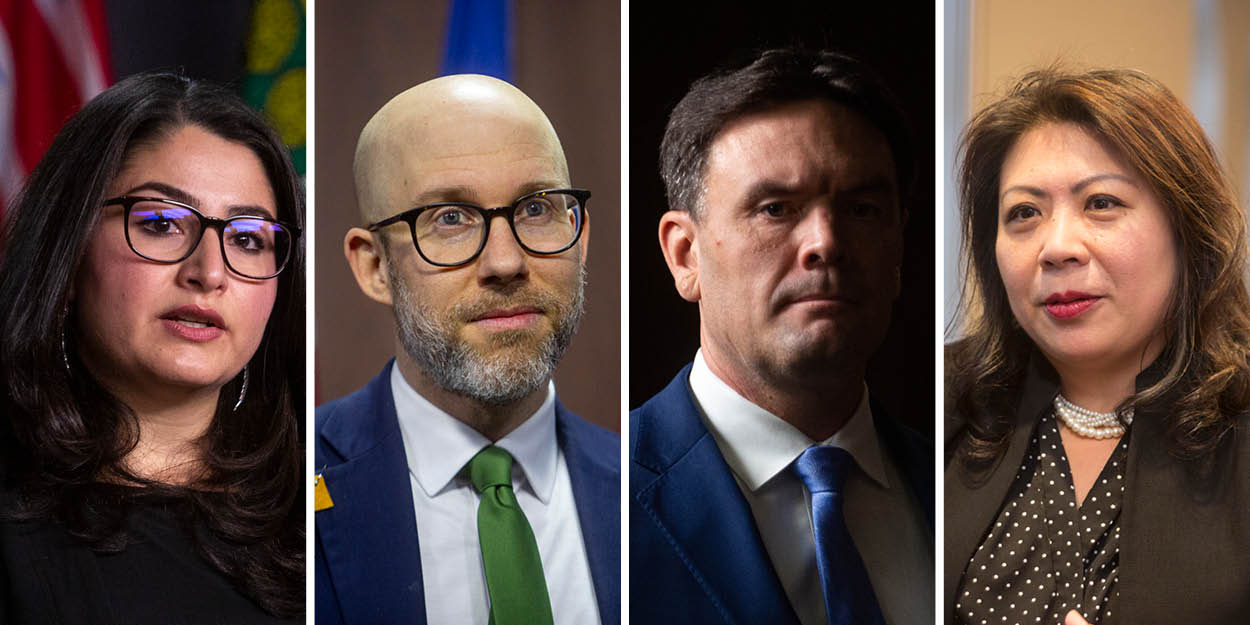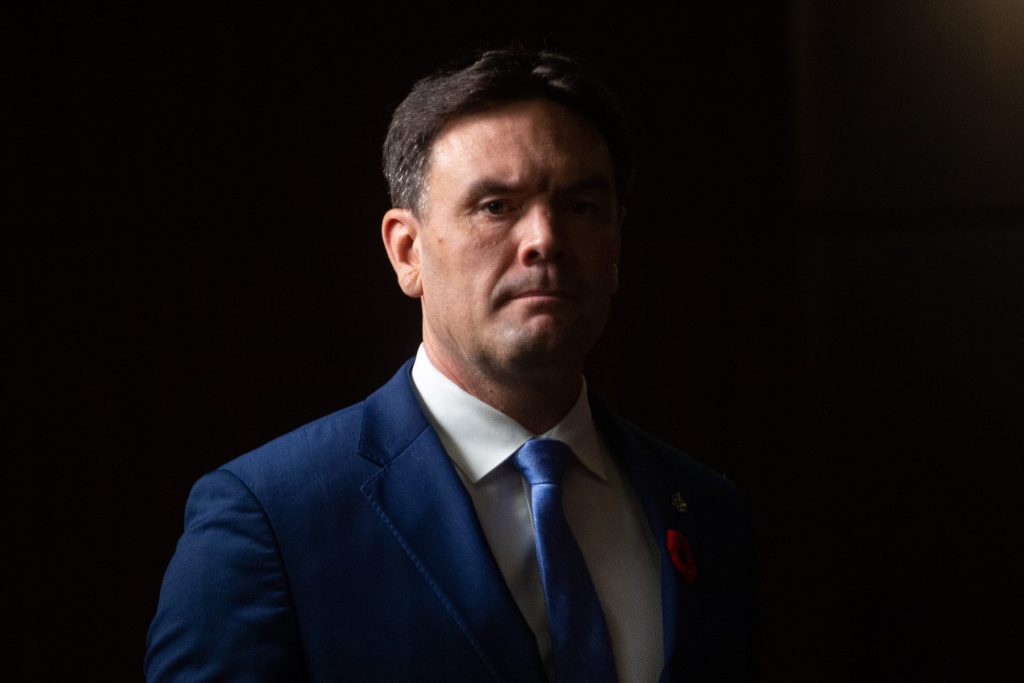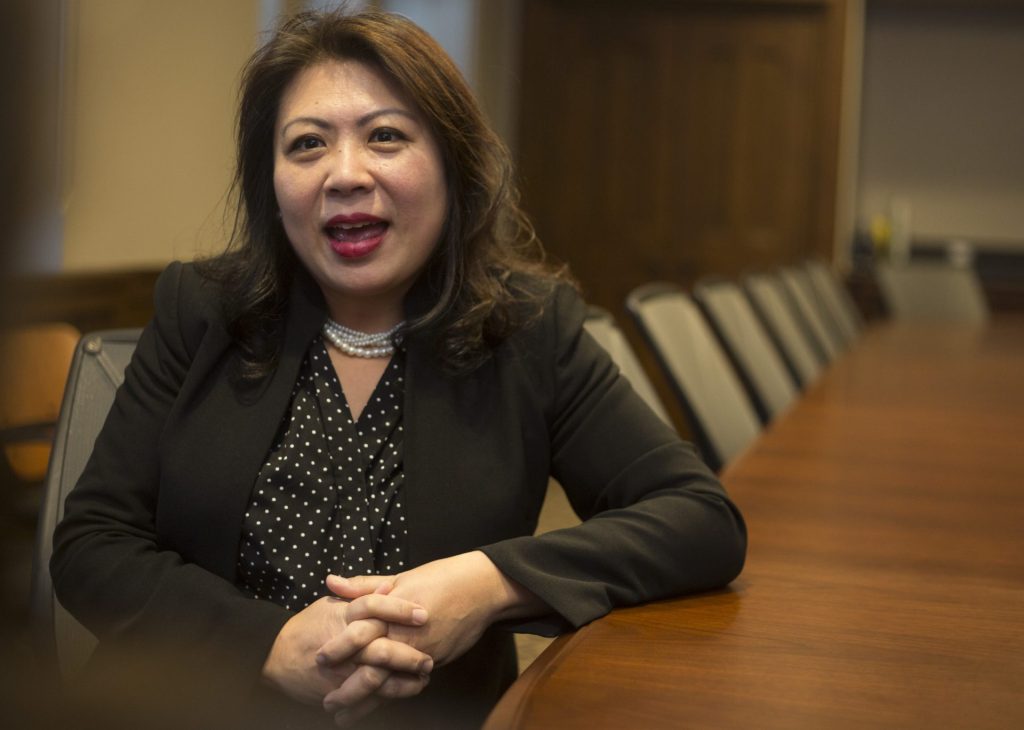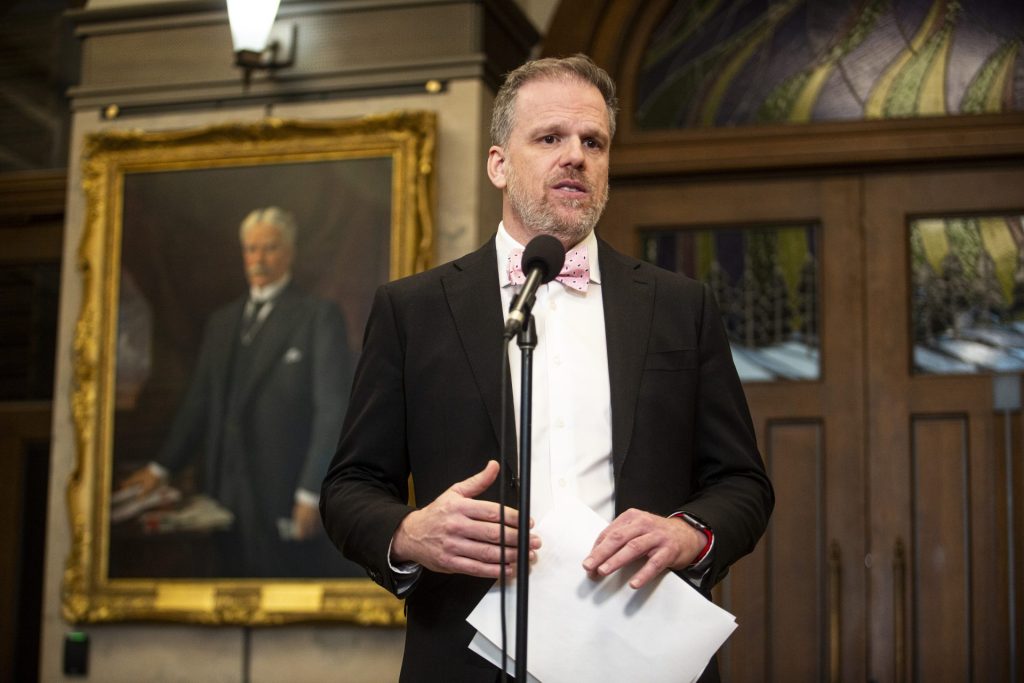‘Rock bottom’: former MPs reflect on election losses, and navigating ‘purgatory’ as they transition to life out of office

Former Liberal MP and cabinet minister Maryam Monsef still hasn’t opened all the boxes her staff packed up from offices after she lost her seat in 2021—a reality a new crop of former parliamentarians are now contending with after the recent election ended their bid to return to the House of Commons.
“It took me years to open some of the boxes [my team] had packed for me,” she told The Hill Times. “There’s still a few boxes that I’m in no hurry to open because I will open them when it’s time to go through that phase of the journey.”
This is a journey that at least 40 outgoing MPs started just two weeks ago, with many of them now in the process of clearing out their offices and emptying their secondary residences after failing to keep their seats—something that former MPs described to The Hill Times as a grieving process.
After representing Peterborough–Kawartha, Ont., for six years, Monsef lost to the Conservatives. Now that riding, under the new name Peterborough, has returned to the Liberal fold under rookie MP-elect Emma-Lee Harrison Hill.
Monsef called the moment she lost her seat “rock bottom,” a low that was only compounded by the Taliban takeover of Afghanistan that was occurring at the time, with the Afghan-Canadian politician feeling there was “nothing” she or her team could do to help following her election loss.
“I did spend a lot of time on the yoga mat and the prayer mat journaling,” she said, when asked about how she processed her loss. “I also had the privilege and the opportunity to take time and space and be away and process what had just happened and realign.”
The timeline to vacate an office after an election loss is a short one. Outgoing MPs are given a 21-day closing period to vacate both their constituency office in their riding and their parliamentary office in Ottawa, set out by the House of Commons’ Members By-Law. For some, this means emptying an office of years—or even decades—of personal effects and files.
That’s something former NDP MP Alistair MacGregor is going through right now after losing his riding of Cowichan–Malahat–Langford, B.C., after almost a decade in office.
MacGregor called the results “numbing,” but said despite his loss he still feels like he’s working full time, facing the daunting task of clearing out years’ worth of work from his offices to make way for his successor.
“Even though I’m not the MP, I still feel like I’m quite busy with office stuff. It’s almost like this in-between part that I’m still stuck in—purgatory,” he joked.
MacGregor lost his British Columbia seat in one of the country’s tightest races, largely because of a progressive vote split between him and the Liberal candidate, which led to the election of Conservative Jeff Kibble, who took the riding by 4.6 percentage points and 3,505 votes.

“I truly left it all out there,” MacGregor said, speaking about his campaign. “Certainly, the next day was hard, but you know, since then, I’ve actually found myself a little bit more at peace, and I think it’s because we realized … our campaign succumbed to events that were beyond our control.”
Former Conservative MP Nelly Shin, who lost her Port Moody–Coquitlam, B.C., seat after two years in office to now-former NDP MP Bonita Zarrillo back in 2021, called the process “a really fast marathon.” This past election, the riding went Liberal with the Conservative candidate fewer than 2,000 votes behind.

“I did the grieving, but I really couldn’t dwell on it,” said Shin, when asked about the process of clearing out her offices. “So, it was kind of like a fast drive-through kind of grieving.”
Speaking about her loss, Shin said she had mixed feelings as she felt “an extra weight of responsibility” working as an MP during the pandemic—a responsibility that she felt relief at shedding following the loss of her seat, citing the workload.
“It was kind of a double-edged sword,” she told The Hill Times. “I put my all into it … it was hard to have worked that hard … But at the same time, a part of me was secretly relieved, because it’s like, finally, I’ll be able to sleep.”
After an MP loses their seat, they are entitled to support to help them transition out of office back into private life. For up to a year after they lose an election, former MPs may access support of up to $15,000 to help transition their career, finances, and/or receive additional education and training. They’re also entitled to four airline trips within Canada for the purposes of job interviews, accessing transition support, or selling their MP residence.
If the MP is under the age of 55 or not entitled to a pension—which requires six years in office—they are also given a severance of 50 per cent of their “sessional allowance.” For the average MP, this works out to $104,900, or half of their annual salary.
But many MPs find the transition out of office difficult to navigate—and for some, this can lead to severe struggles with mental health.
Former Liberal MP and health minister Mark Holland is among the more than five dozen MPs who opted against running for re-election. Holland—who represented Ajax–Pickering, Ont., between 2004-2011, and Ajax between 2015 until this election—notably spoke about his struggles after his 2011 defeat before a 2022 parliamentary committee.
After being unseated by former diplomat and Conservative MP Chris Alexander, Holland said the loss left him in a “really desperate spot,” revealing that his mental state became dark enough that he attempted suicide.
“I was told that I was toxic. The Conservatives hated me. No organization would hire me. My marriage failed. … My space with my children was not in a good place and most particularly my passion—the thing I believed so ardently in that was the purpose of my life—was in ashes at my feet,” he said in the speech, in which he discussed his and his mother’s suicide attempts.

After her defeat, Monsef founded ONWARD, a company than helps individuals and organizations with leadership and diversity, equity, and inclusion. She said many defeated MPs face difficulty adjusting after leaving office, and that she thinks more needs to be done to help MPs adjust.
“Some people, you know, end up divorcing … Some people don’t have a career to turn to, so it can be a really painful time and a bleak time for some,” said Monsef, who held several ministerial portfolios including Women and Gender Equality, rural economic development, and international development under then-prime minister Justin Trudeau.
“These are people who’ve given their life to the country, and I think we would attract and retain more diverse people in politics if we had more supports for them to transition into and out in a more dignified and less turbulent way.”
But MacGregor emphasized that he’s thinking more about his team’s loss than his own. When an MP loses their seat, their staff are also out of a job—something MacGregor also experienced when he worked as a staffer before running for office.
“We did a lot of incredibly difficult work together, and they’ve got an amazing skill set, and now they’re unemployed,” he said.
Since 2019, MPs and terminated employees have been able to use the House’s Employee and Family Assistance Program, which provides counselling services on a range of topics from addiction to financial counselling, for a full year after employment.
Former Green MP Mike Morrice, who was unseated by Conservative MP Kelly DeRidder in Kitchener Centre, Ont., by fewer than 400 votes, expressed a similar sentiment after his loss brought his party’s caucus back down to one seat in Parliament. Morrice said he was focused on showing appreciation to his supporters and staff as well as closing down his offices, describing conversations as “pretty emotional [and] pretty uplifting.”
“We’ve been hosting debrief sessions and appreciation nights with different groups of volunteers,” he said. “We’ve all just been really focused on both the transition process, but also just the appreciation.”
Shin, who is now working on a novel but hasn’t ruled out returning to politics in the future, said those leaving office need to remember “they’re human first,” and to “give themselves a space to be restored,” saying MPs are “blessed with a platform,” and that that’s something to be grateful for.
ewand@hilltimes.com
The Hill Times






 LICENSING
LICENSING PODCAST
PODCAST ALERTS
ALERTS













